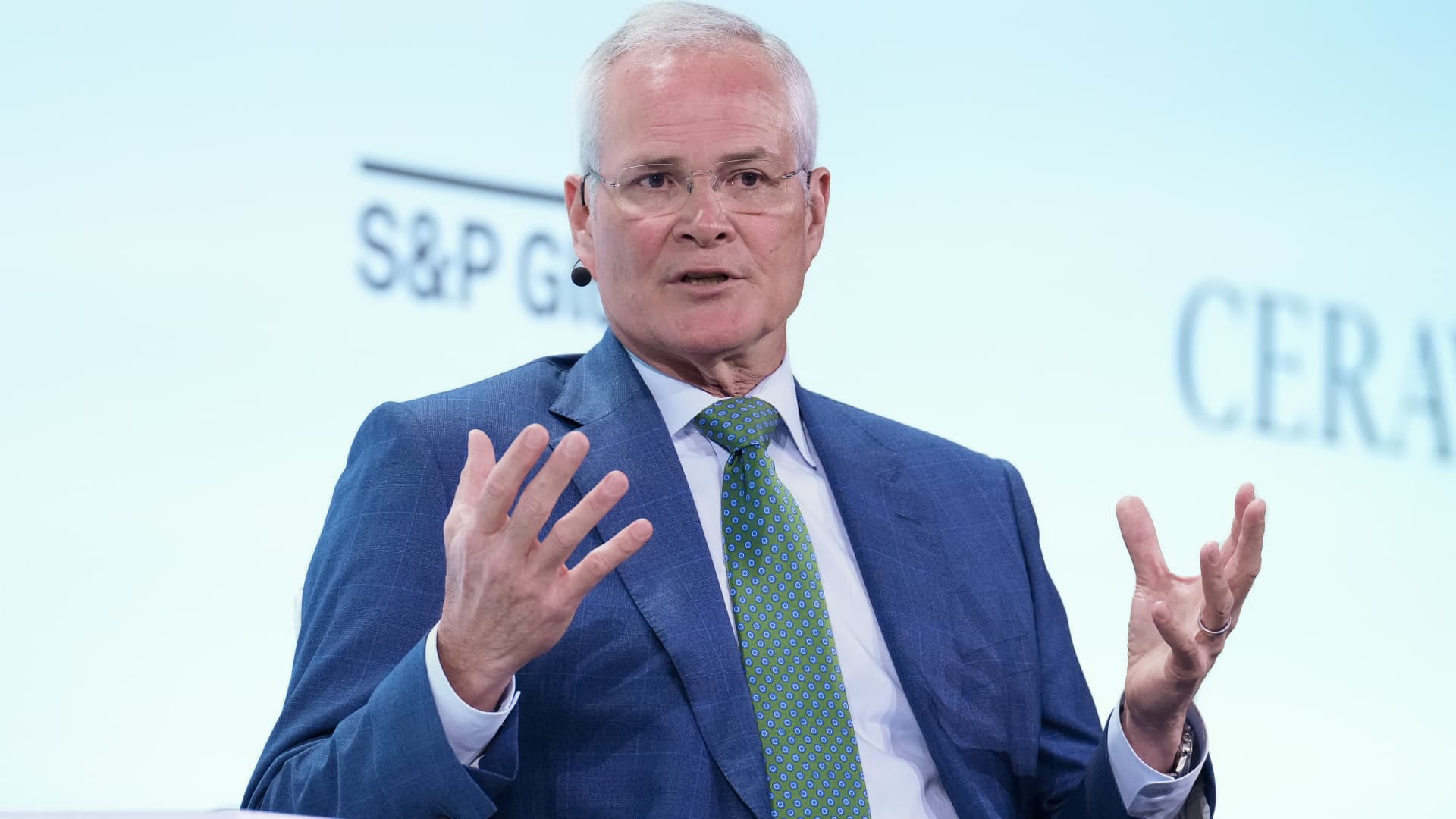The outcome of the U.S. presidential election on Nov. 5 won’t affect oil production levels in the short to medium term, Exxon CEO Darren Woods told CNBC on Friday.
Former President Donald Trump has called for unconstrained oil and gas production to lower energy prices and fight inflation, boiling his energy policy down to three words on the campaign trail: “Drill, baby, drill.”
“I’m not sure how drill, baby, drill translates into policy,” Woods told CNBC’s “Squawk Box” on Friday after the largest U.S. oil and gas company reported third-quarter results.
Woods said U.S. shale production does not face constraints from “external restrictions.” The U.S. has produced record amounts of oil and gas during the Biden administration.
Over the past six years, the U.S. has produced more crude oil than any other nation in history, including Saudi Arabia and Russia, according to the Energy Information Administration.
Output in the U.S. is driven by the oil and gas industry deploying technology and investment to generate shareholder returns based on the break-even cost of production, the CEO said.
“Certainly we wouldn’t see a change based on a political change but more on an economic environment,” Woods said. “I don’t think there’s anybody out there that’s developing a business strategy to respond to a political agenda,” he said.
While shale production has not faced constraints on developing new acreage, there are resources in areas like the Gulf of Mexico that have not opened up due to federal permitting, the CEO said.
“That could, for the longer term, open up potential sources of supply,” Wood said. In the short to medium term, however, unconventional shale resources are available and it’s just a matter of developing them based on market dynamics, he said.

Exxon Mobil shares in 2024.
The vast majority of shale resources in the U.S. are on private land and regulated at the state level, according to an August note from Morgan Stanley. About 25% of oil and 10% of natural gas is produced on federal land and waters subject to permitting, according to Morgan Stanley.
Vice President Kamala Harris opposed fracking during her bid for the 2020 Democratic presidential nomination. She has since reversed that position in an effort to shore up support in the crucial swing state of Pennsylvania, where the natural gas industry is important for the state’s economy.










